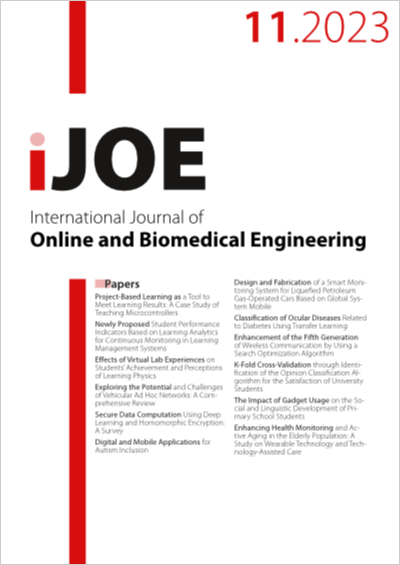Newly Proposed Student Performance Indicators Based on Learning Analytics for Continuous Monitoring in Learning Management Systems
DOI:
https://doi.org/10.3991/ijoe.v19i11.39471Keywords:
Learning Analytics, Technology Enhanced Learning, Data-driven, ABC Learning Design, Academic PerformanceAbstract
E-learning platforms have become increasingly popular across various industries, with higher education institutions being among the primary adopters. Learning management systems (LMSs) have emerged as valuable tools that facilitate the management of learning and training processes while providing support for learning administration. However, LMS platforms often offer limited functionality for monitoring students’ instructional progress, which is essential for understanding how learners interact with courses and materials. As a result, identifying at-risk students, tracking their progress, and intervening when necessary can be challenging. The substantial amount of data generated by LMS platforms can be transformed into meaningful indicators that allow for monitoring learners’ progress and enhancing their self-regulation. Our research project focuses on developing a set of pedagogical indicators using learning analytics to monitor students’ progress. We present a case study where we tracked and monitored the progress of students in the Web Technologies course on the e-campus platform at Cadi Ayyad University (Morocco), using a set of student performance indicators (SPIs). The findings of this study suggest that employing SPIs can help faculty members identify underperforming students, project their progress, and anticipate those at risk, ultimately enabling them to provide timely interventions to support learners’ progress.
Downloads
Published
How to Cite
Issue
Section
License
Copyright (c) 2023 Aimad QAZDAR, Oussama HASIDI, Sara QASSIMI, El Hassan ABDELWAHID

This work is licensed under a Creative Commons Attribution 4.0 International License.



